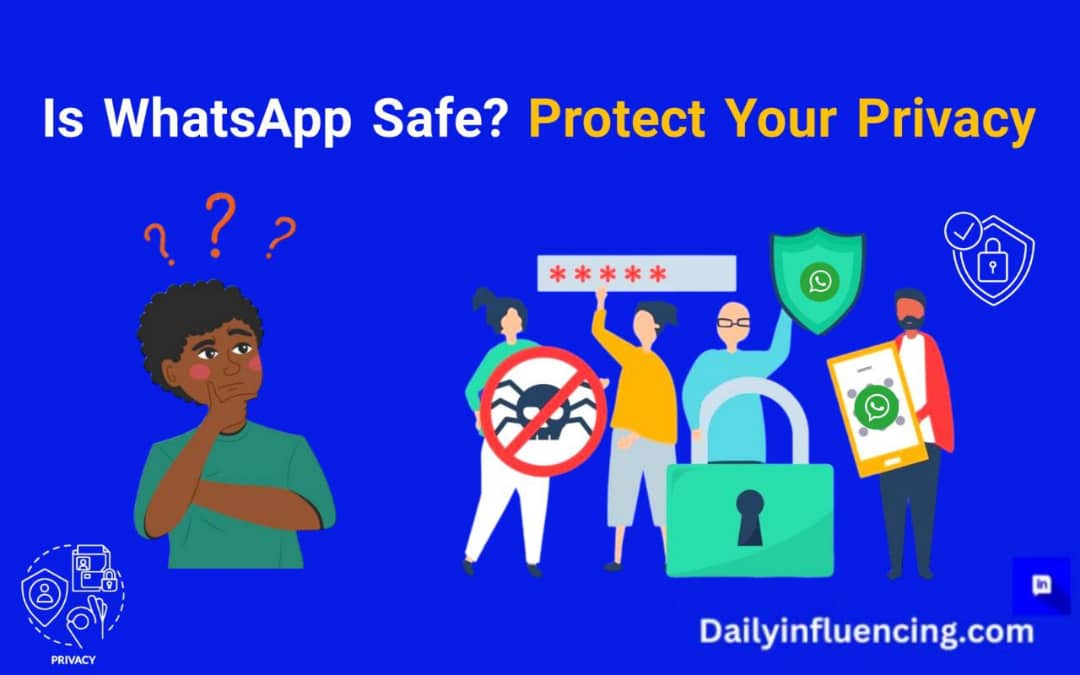
Avoid WhatsApp Scam and keep your personal info safe. Get done deal advice on how to spot and prevent scams.
As the world becomes increasingly interconnected, our reliance on digital communication platforms like WhatsApp continues to grow. Meanwhile, scammers are exploiting this trend, using WhatsApp as a conduit for their nefarious activities.
Consequently, WhatsApp scams have emerged as a significant threat to users worldwide. Furthermore, these scams can have devastating consequences, including financial loss, identity theft, and distress. Therefore, it’s essential to understand the risks and take proactive measures to protect yourself.
In this article, we’ll examine the different types of WhatsApp scams, discuss the warning signs, and provide expert advice on how to prevent and respond to these threats. Additionally, we’ll share valuable tips on how to safeguard your WhatsApp account and maintain your online security.
Avoid WhatsApp Scam: The Rising Threat
As we delve deeper into the world of WhatsApp scams, it’s essential to understand the context and scope of the problem. Notably, WhatsApp scams have been on the rise in recent years, with scammers becoming increasingly sophisticated in their tactics. Moreover, the COVID-19 pandemic has accelerated the shift to online communication, creating new opportunities for scammers to exploit.
Consequently, WhatsApp has become a prime target for scammers, with millions of users falling victim to scams every year.
Furthermore, the financial losses resulting from these scams can be substantial, with some victims losing thousands of dollars. Therefore, it’s crucial to stay informed and vigilant in order to Avoid WhatsApp Scam.
Understanding the Risks
In light of the growing threat posed by WhatsApp scams, it’s imperative to prioritize online safety. Indeed, staying safe on WhatsApp requires a combination of awareness, caution, and proactive measures. Moreover, by taking the necessary precautions, users can significantly reduce the risk of falling victim to scams.
Additionally, staying safe on WhatsApp also involves being mindful of the information shared online and avoiding suspicious links or attachments. Consequently, by adopting a safety-first approach, users can protect themselves, their loved ones, and their financial information from the ever-present threat of WhatsApp scams.
Types of Scams to Watch Out For
WhatsApp scams can take many forms, and it’s essential to be aware of the different types of scams that exist. In this section, we’ll explore the most common types of WhatsApp scams, including phishing scams, financial scams, and romance scams.
- Phishing Scams
Phishing scams are one of the most common types of WhatsApp scams. Scammers send fake messages that appear to be from a legitimate source, such as a bank or a popular online service. These messages often ask users to reveal sensitive information, such as passwords, credit card numbers, or personal identification numbers (PINs).
- Financial Scams
Financial scams are another type of WhatsApp scam that can result in significant financial losses. Scammers promise users a large sum of money or a lucrative investment opportunity, but require them to pay a fee or provide financial information first. These scams can take many forms, including fake job offers, investment schemes, and prize winnings
- Romance Scams
Romance scams are a type of WhatsApp scam that targets users’ emotions. Scammers create fake profiles and build relationships with users, often using stolen photos and personal information. Once the scammer has gained the user’s trust, they ask for money or financial assistance, often claiming to be in a crisis or needing help with a personal issue.
Avoid WhatsApp Scam: Warning Signs
WhatsApp scams can be difficult to spot, but there are several warning signs that can indicate a suspicious message. Here are some common warning signs to look out for:
Urgent or Threatening Messages
Scammers often try to create a sense of urgency or fear to prompt users into taking action. Be cautious of messages that:
– Threaten to cancel your account or service if you don’t take immediate action
– Claim that your account has been compromised or hacked
– Demand that you are to pay a fine penalty
Suspicious Links or Attachments
Scammers often use links or attachments to spread malware or steal personal information. Be cautious of messages that:
– Contain links or attachments from unknown sources
– Ask you to download or install software or apps
– Contain suspicious or unfamiliar file types

Poor Grammar or Spelling
Scammers often use automated tools to send messages, which can result in poor grammar or spelling. Be cautious of messages that:
– Contain multiple spelling or grammatical errors
– Use overly formal or awkward language
– Contain inconsistent or unusual formatting
Unusual Requests
Scammers often ask users to provide personal or financial information. Be cautious of messages that Ask:
– for your password, credit card number, or other sensitive information
– You to transfer money or provide financial assistance
– To provide personal information, such as your address or date of birth
Proven Prevention Strategies
While WhatsApp scams can be sophisticated, there are several steps you can take to prevent them. Here are some effective prevention strategies:
To avoid WhatsApp Scam Verify the Identity
Scammers often use fake numbers or profiles to send scam messages. To verify the identity of the sender:
– Check the sender’s phone number or profile picture
– Look for any inconsistencies in the sender’s information
– Be cautious of messages from unknown or unfamiliar senders
Be Cautious of Links and Attachments
Scammers often use links or attachments to spread malware or steal personal information. To stay safe:
– Avoid clicking on links or downloading attachments from unknown senders
– Use a reputable antivirus software to scan links and attachments
– Be cautious of links or attachments that ask for personal or financial information
To Avoid WhatsApp Scam Use Two-Factor Authentication
Two-factor authentication (2FA) adds an extra layer of security to your WhatsApp account. To enable 2FA:
– Go to WhatsApp setting > Account > Two-Factor Authentication
– Enable 2FA and enter a six-digit PIN
– Provide an email address to receive a reset link in case you forget your PIN
Regularly Update Your WhatsApp App
Keeping your WhatsApp app up-to-date can help protect you from scams. To update your WhatsApp app:
– Go to the App Store (for iOS devices) or Google Play Store (for Android devices)
– Search for WhatsApp and check for updates
– Install the latest version of WhatsApp
CONCLUSION
WhatsApp scams are a growing threat, but fortunately, by being aware of the risks and taking the necessary precautions, you can protect yourself and your loved ones. Moreover, it is essential to remember to stay vigilant, verify the identity of senders, and never provide personal or financial information to unknown individuals.
In addition, by following the tips and strategies outlined in this article, you can significantly reduce your chances of falling victim to a WhatsApp scam. Consequently, staying safe on WhatsApp not only protects you but also helps create a safer community for everyone.
Tips:
– Firstly, stay informed about the latest WhatsApp scams and threats
– Secondly, share this article with friends and family to spread awareness
– Lastly, report suspicious activity to WhatsApp and local authorities





